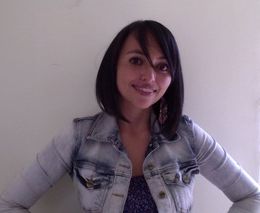Diana Santacruz
Is currently looking for a job

What impact does the economic upswing in Colombia have on your work?
To answer to this question it is necessary to explain Colombia’s historical context. The internal armed conflict in Colombia is a low-intensity asymmetric warfare that has been developed in Colombia since the 1960s until now. The conflict is rooted in agricultural problems, and its main actors involved were initially the Colombian State and the far-left guerrillas; decades later, extreme right-wing paramilitary groups, drug cartels and criminal gangs. It has gone through several stages of resurgency, especially since the 1980s when some of the actors began to finance drug trafficking. Last year Colombia’s Congress approved a revised peace accord with the country’s largest rebel group. That is a testament to what can be achieved through dialogue and compromise, even in a deeply polarized society. If the deal holds it will set a strong road map for us Colombians to start healing the wounds of a brutal conflict that raged for more than five decades, and also look forward to build a more egalitarian, tolerant society. In this new chapter of our history we are trying to correct those problems in agricultural lands and forests accumulated over many decades. Colombia is a farmer country, and my career in general is inevitably impacted by all of this as well, because increased population, together with the policies of extractivist economic development, means we have to now prioritize the implementation of effective strategies to ensure the protection, mitigation and prevention of threats and a suitable and sustainable use of the country's biologic diversity.
Have you seen any progress yet?
Yes, we are trying to use the opportunity that post-conflict brings to make a transformation into a sustainable use of our biodiversity. We must build conservation mosaics along with agro-industrial systems to prevent the development of future conflicts due to environmental deterioration. This is based on the fact that national and international companies that avoided being in Colombia during the conflict will probably change their minds and want to exploit natural resources in a fully legal framework, which means that new natural areas and their resources will be at risk. And in addition to that, now we moved from illegal crops to illegal exploitation of gold, which is more profitable than cocaine production and it is legal (what is illegal are the ways of doing mining, which represents a difficulty when it comes to legal control, endangering body waters and biodiversity).
Life will never be perfect and even when it seems that the progress involves problems, here is where I want to be, tackling different issues to work for the land that gave me what I have now, a land that I love dearly and care for.
Where do you think is still potential for development?
The potential for development in Colombia is based in essence on a bio economical model, now that we are living times of post-conflict, because it offers us alternatives for local growth, by developing productive projects to go beyond extractivist approaches. And it looks forward to minimizing the ecological footprint of human activities; reducing the consumption of fossil fuels to build a transition towards a different economic model; taking advantage of the ecological function of the territory.
Integral management of biodiversity and its ecosystem services requires reconciling conservation with development. This element is particularly necessary in a multi-ethnic and multi-cultural country such as Colombia, which still has outstanding tasks in its development model, for example the many regions with unsatisfied basic needs and high rates of illiteracy and child morbidity, among others.
What advantages has your BOKU education given you? How did/do you use your knowledge from your BOKU experience?
With the Master’s I got at BOKU I had the opportunity to work as an advisor for the Ministry of Environment and Sustainable Development of Colombia. I gave technical inputs on projects sponsored by international cooperation, in collaboration with the agricultural sector as the third main element of the Amazon Vision Program and the REDD+ (Reduction of Emissions from Deforestation and forest Degradation) National Strategy.
Studying at BOKU gave me the chance to learn a foreign language. I learnt from a culture opposite from mine, and I believe that the culture of a place is not simply given by its music, clothing or food but by the way of thinking of its population. And interacting with the members of the Austrian culture for a while allowed me to truly understand their customs and thoughts. I came back to my homeland with a different perspective of myself, the world and life in general. Everything in positive terms.
What‘s your philosophy of life?
I’m a Christian. I believe in forgiveness of sins by God. The Father, Son and Holy Spirit, God in one the creator of the Universe, The Ancient of Days, The Giver of Peace. I’m strongly convinced about loving others as God loved me first. I believe in reconciliation, restoration, second chances, and new opportunities for everyone, every single day. I believe that God has a unique plan for every single human been and we are all important to His sight. In my personal relationship with God I’ve discovered that his gentle and mighty power are still the same today. And I rely on God’s wisdom, joy and guidance to live my life and be the best version of myself for those around me. I enjoy nature, reading and praying, meditating on the Bible, having a cup of coffee with my friends or family to delight myself with their company. Outdoor activities are my favorite and animals are great as well! I’m a friendly person that loves being alive!
